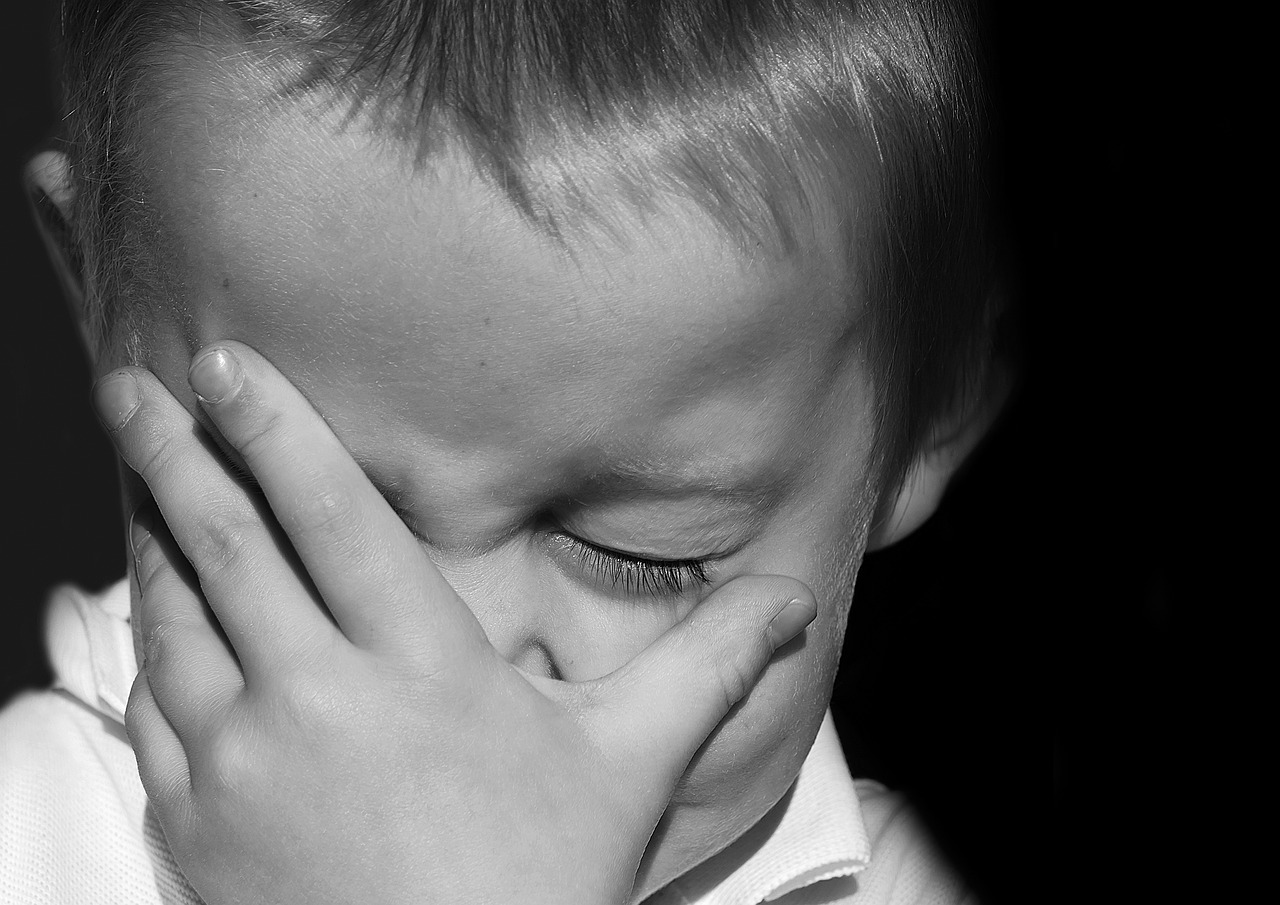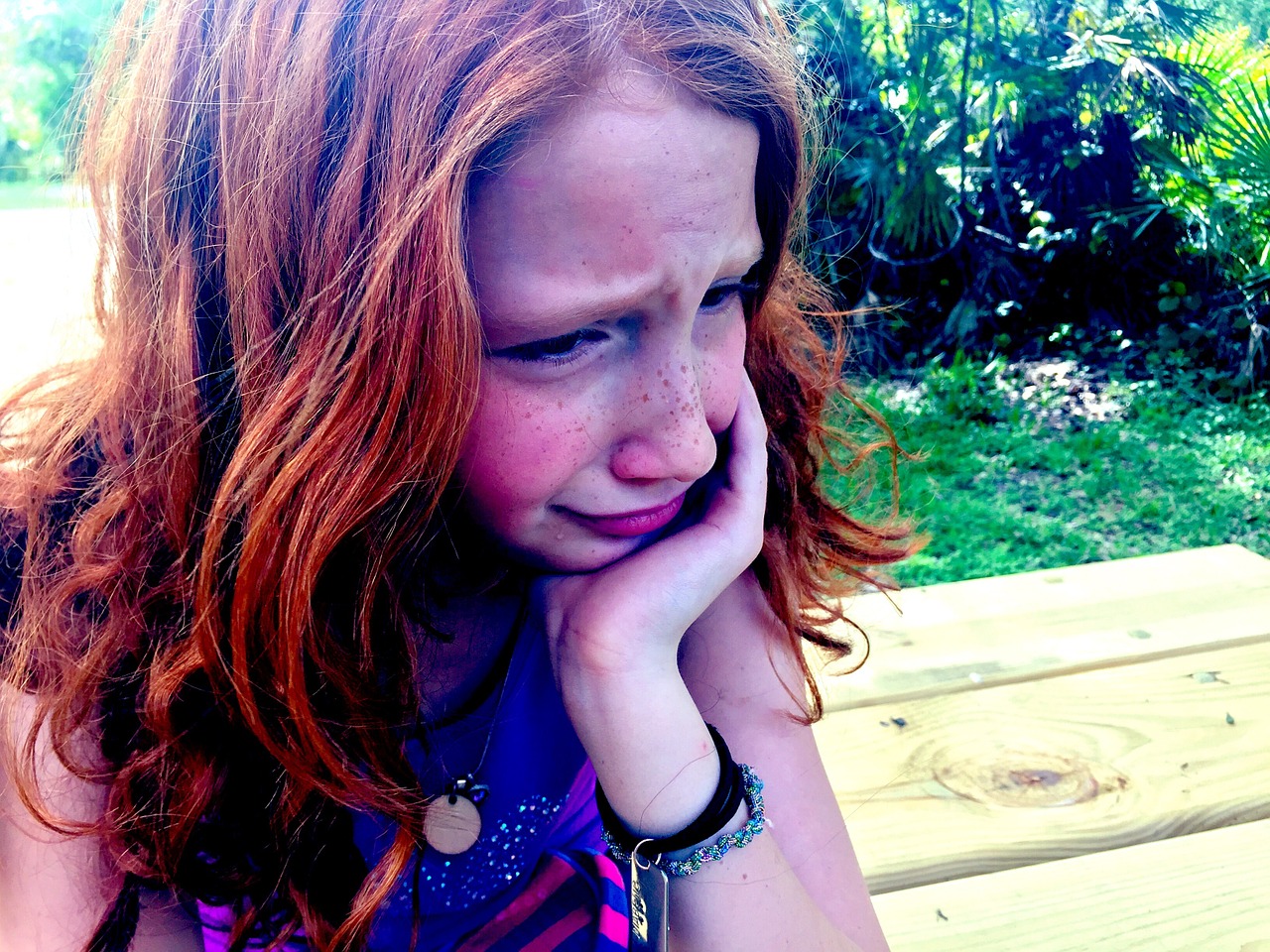
I took my son to a pediatric ophthalmologist this week. While waiting for his eyes to dilate, we heard a dramatic young girl crying, “This is the worse experience of my life!”, “This is the worst day of my life”, and “Get me out of here Mommy!” She reminded me of my own daughter and her temper tantrums. This young girl was very sensitive, articulate, dramatic, intelligent, and afraid. Her mother tried to calm her down by telling her she was” just really, really tired”. It struck me how this was the wrong thing to say.
I’ve said it many times to my children when they are upset. “You are really tired.” Their typical response is “No! I am not tired!”. It took my listening to this upset child from afar and the mother’s response so similar to mine to realize how this statement doesn’t calm children down. Chalking up their strong emotions and feelings to being tired is like a denial to what they are feeling at the moment, whether tired or not.
Every parent knows a tired child, as well as a tired parent, is more easily upset. To tell a child they are tired when they are in the throws of emotional turmoil is not comforting. To the child, they think the parent is not hearing them, not understanding their plight. Being tired may have contributed to the level of emotional response, but it is not the actual cause. The child wants to be acknowledged for their experience, not the contributing factors.
I’m an adult. I often tell my kids when I am tired. It’s like a warning. My patience will be thin. My kids get that now that they are older. They will also warn me of their tiredness; however, when they are in the throws of emotional upheaval, they still don’t like to be told they are tired.
I talked to my teenage daughter about our experience at the eye doctor. She remembered well the feeling of being told she was tired when she was upset. She said her gut instinct was to deny it (she felt the same way about being told she should put on a jacket because she was cold). It was a feeling of someone else telling you what your emotions are or their cause or what they should be. It only upset her more.
Telling an upset child that they are simply tired denies whatever strong feelings they are having. It dismisses them. As parents. we want to fix things for our children. We want them to calm down, especially in public situations of toddler temper tantrums. Sure we can make sure our children get enough rest and are well fed to prevent tantrums from escalating, but tantrums are a normal part of child development. Our response to them is crucial for our children’s social and emotional well-being. Parenting.com explains:
Michael Potegal, Ph.D., a pediatric neuropsychologist at the University of Minnesota, in Minneapolis, has spent the latest part of his professional career studying tantrums and how and why young children have such brutally emotional explosions. And what has he learned in that time? That their outbursts are as normal a biological response to anger and frustration as a yawn is to fatigue.((http://www.parenting.com/article/toddler-temper-tantrums))

There’s a lot of advice on the internet for dealing with temper tantrums. Being tired is definitely a trigger, but it is sometimes unavoidable. Babble offers the following insight:
Situations that evoke strong emotions can also bring equally dramatic meltdowns. A doctor’s visit may induce fear. A drawn out shopping visit may test your child’s patience. Even a long play-date may overstimulate a child to the point of a tantrum. Consider the source of the tantrum before you decide how to deal with it—much like a doctor determines an illness before prescribing specific medication. It may be a matter of getting your child something to eat. Or, as with the doctor’s appointment, you may need to sit down with your child and explain the situation in simple words.
“Often times we as parents trigger tantrums by the things that we are doing or not doing and we don’t even know it,” says Erin Brown Conroy, author of 20 Secrets to Success with your Child and the mother of 12 children. “If you haven’t been listening when your child has been trying to tell you something with a small voice, she may have to use a big voice in order to get your attention.” If your child knows that you are listening to her, she is less likely to have to kick and scream to get her point across. Conroy suggests that something as simple as establishing eye contact with your child before you begin to talk to her will go a long way toward having your child know that she is being heard.((https://www.babble.com/toddler/tantrum-survival-guide/))
I felt the little girl in the doctor’s office was cute with her dramatic temper tantrums, but I felt bad for her. Unlike my children that would deny their tiredness, she told her mommy, “I know I am tired, but this is the worst day of my life.”. She was smart. She wanted her mom to acknowledge her experience, that it was significant regardless of her tiredness. She wanted comfort and support. Unfortunately, for most kids being told they are tired does not do this.
Learning how to handle strong emotions at young age is important. Dismissing these emotions to tiredness does not help. We wouldn’t think of telling a teenager or adult they are “tired” when they are upset, why do we think it is soothing for a youngster?
Leave a Reply